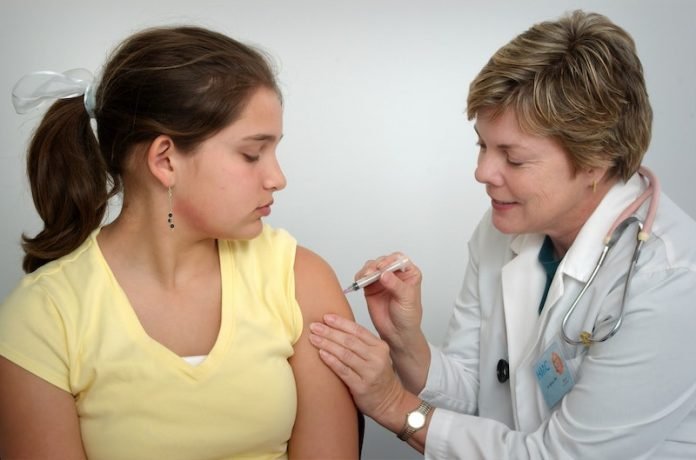
In a new study, researchers found an existing vaccine could make COVID-19 less deadly.
They examined 255 people vaccinated with the mumps-measles-rubella (MMR) vaccine since the start of the COVID-19 pandemic.
Many vaccinated patients were family members or caregivers of patients who already had contracted COVID-19, and were thus at extremely high risk.
Thirty-six of the patients have now contracted COVID-19, but all with a remarkably mild course, experiencing less severe symptoms than would be expected given their health status and age.
Since COVID-19 was new to humans, there was no existing treatment or vaccine to specifically fight it.
But the team had followed the work of a fellow countryman on a little-known concept called “trained immunity.”
This means that surprisingly, some vaccinations can not only prevent the target disease (such as measles), but also produce an immune response to other diseases.
Trained immunity is a form of non-specific immunity. Researchers had found that certain live-attenuated vaccines can better prepare the body to fight off a range of pathogens.
In the study, the team wondered: Could a live-attenuated vaccine be protective against this entirely new disease, COVID-19, for their patients?
Taking advantage of the fact that the pandemic in Mexico coincided with a rise in measles cases, which had motivated the Ministry of Health to recommend measles re-vaccination, the team decided to put the concept of trained immunity to the test.
From March 2020 onward, the researchers recommended MMR vaccination to their patients, especially among family members of COVID-19 cases.
They gave patients boosters of a standard childhood vaccine, measles-mumps-rubella (MMR), which is considered safe worldwide (a booster is even required in many places to start college or military service).
The patients were considered high risk for COVID infection because many were caring for ill family members and were vulnerable due to their age or other risk factors.
The team found among the 255 vaccinated people, there were 24 confirmed and 12 (highly) probable COVID-19 cases, thirteen with risk factors that can often make COVID-19 more serious (hypertension, diabetes, obesity, smoking, or uncontrolled asthma).
In general, the cases were less severe than would be expected. All had minor respiratory symptoms at most. Only one patient, with uncontrolled asthma, had one day of mild low blood oxygen.
No patients had respiratory insufficiency to the degree of needing oxygen.
The researchers were relieved that MMR, which is commonly thought of as childhood vaccination, seemed to help our older adult patients weather the storm, too.
They say they would not be surprised if MMR could provide some protection against severe COVID-19.
They have been reporting on mortality reductions from live-attenuated vaccines such as polio, BCG, and measles vaccine/MMR for multiple decades now, and arguing for optimized vaccine schedules.
One author of the study is Dr. Larenas-Linnemann.
The study is published in Allergy.
Copyright © 2020 Knowridge Science Report. All rights reserved.



